SPACE - The Perceptual Frontier
Why was William Shatner's first real space trip such an existential shock?
It was a poignant moment in history: The actor William Shatner, who had played a spaceship captain in movies and TV shows for decades, finally got to experience a real trip into Earth orbit in 2021 (courtesy of Jeff Bezos).
What really intrigues me is Shatner’s reaction to being in space, as he told it afterwards. He was shaken up, and profoundly so:
"It was the death that I saw in space and the lifeforce that I saw coming from the planet — the blue, the beige and the white," he said. "And I realized one was death and the other was life.”
(NPR interview)
Outer space is not depicted accurately in “modern” visual media. Most of all, they cannot and do not convey its stupendously vast scale. Frequently, distances in “media” outer space are deliberately made to look smaller than on Earth. Travel is done away with faster than on the ground.
Space, as depicted in the BATTLESTAR GALACTICA television shows (2000s version). Even here, space was not shown “to scale” (even though the show did at least attempt to step outside previous tropes that made it seem tiny).
It’s almost as if our fictionmakers and storytellers are scared of even hinting at the true scale of space. Are we, on some deeper level…. afraid of the real universe? Surely not, you might say - but then why was Bill Shatner so devastated when he experienced outer space directly? (Hadn’t all those years of playing a space traveler sort of prepared him for it?)
Is it, at least partly, because evolution never needed to adapt human perception to such scales?
The first humans needed to perceive distances of at least several kilometers for their basic survival. Even so, the distances on an African savannah - today or a million years ago - are nothing compared to the scales of outer space. (CC image source: Javier Puig Ochoa)
In any case, the problem of depicting something so outside our normal sensory experience is old - ancient, even.
I'm fascinated by how media have shaped our perception of the larger universe. This is clearly evident in historical images of comets. Before photography entered the field of astronomy, most images of comets were stylized, "unrealistic" and shaped by the current imagination about the cosmos.
Almost all pre-photographic images of comets are images of something other than a real comet. They are mostly stylized images of fire or flames, or include abstract ideas of stars.
It’s not as if people watching a comet in the 18th century were too nearsighted or stupid to perceive it. But they did not know what stars were, except as bright dots. They had no concept of the scale of space, no experience, no reference points. Space was the realm of the gods, an abstract realm.
In that context, a comet was a supernatural or superreal event, an omen from the gods, something outside normal sensory experience. (They were perhaps just as shocked by the sight as Bill Shatner was when he saw Earth from space for the first time.)
Ancient Chinese depictions of comets are pictograms - not that different from the pictograms in Chinese writing.
Actual comet 67P, with a tail of gas and dust. Photographed from 162 kilometers away by the Rosetta space probe, in 2015. Even real photos cannot convey the vastness of the space surrounding a comet; the camera also makes space seem small. (Photo: ESA)
These historical examples show how hard it was - and still is - for humans to perceive the cosmos "directly". Somehow our media "toolbox" gets in the way between the universe as it is, and how we perceive it.
THE MYSTERIES OF THE UNIVERSE (2020), a recent astronomy book for children. Note how the cover art bunches up the cosmos into a cozy, enveloping, small embrace (with zodiac figures included!). The purpose of this image is to avoid depicting the scale of space. And look at that comet, right above the book title… it still looks like a medieval drawing!
And who are we to say that now that problem has disappeared? That now we no longer have difficulty seeing space without the "filter" of concepts? I can't prove it, but I wonder if we are like goldfish trying to make sense of the vast shapes outside the aquarium...
FOOTNOTE:
The theatrical behavior of Katy Perry and those other “space travelers” after returning from their group ride on Jeff Bezos’s rocket made me very suspicious. The phoniness and theatricality was grating. Could it be that: A) They were hiding/suppressing what they really experienced, and it may emerge later; B) They were too self-absorbed (or dimwitted) to understand or take in what they were seeing; C) They never went to space — the whole trip was a fake.




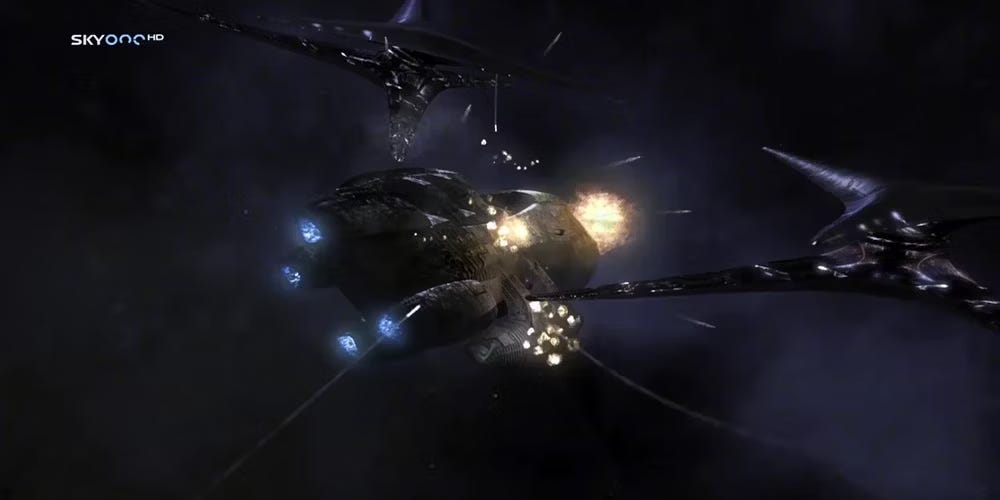

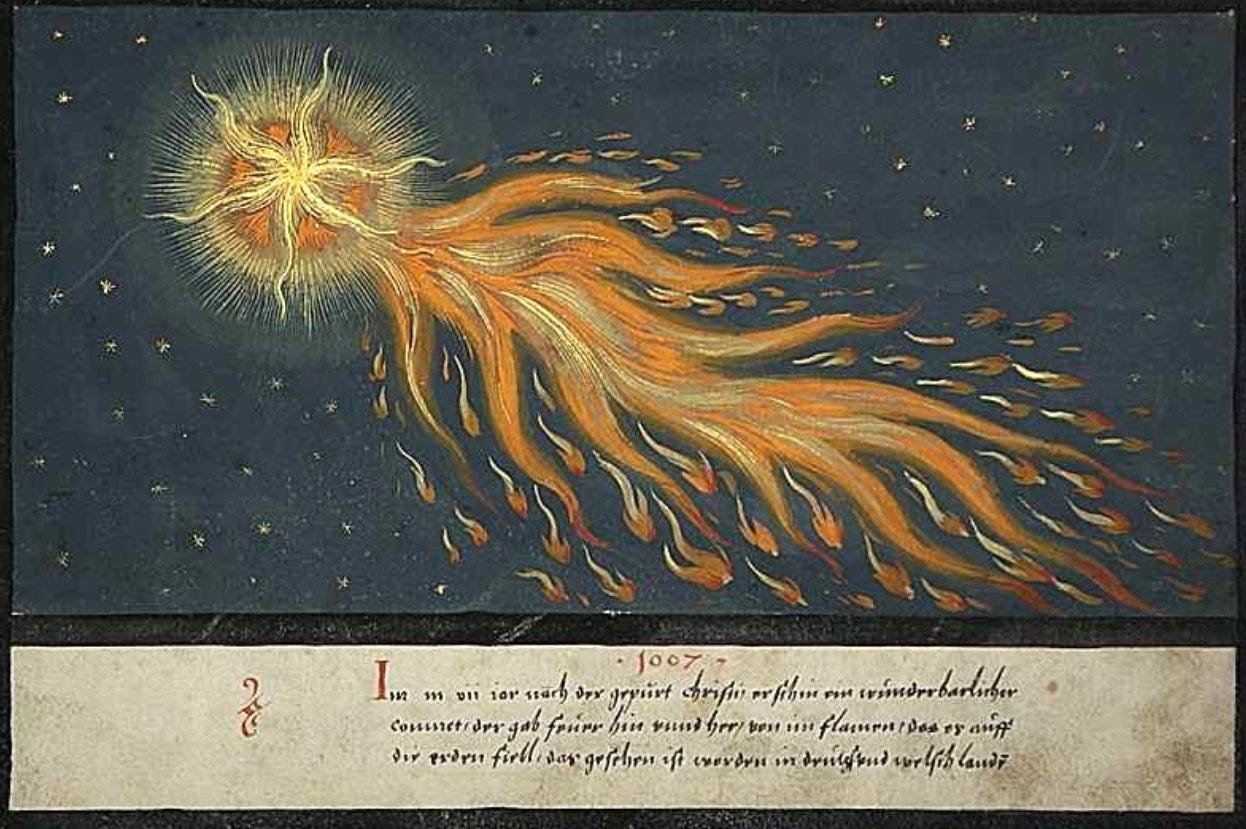

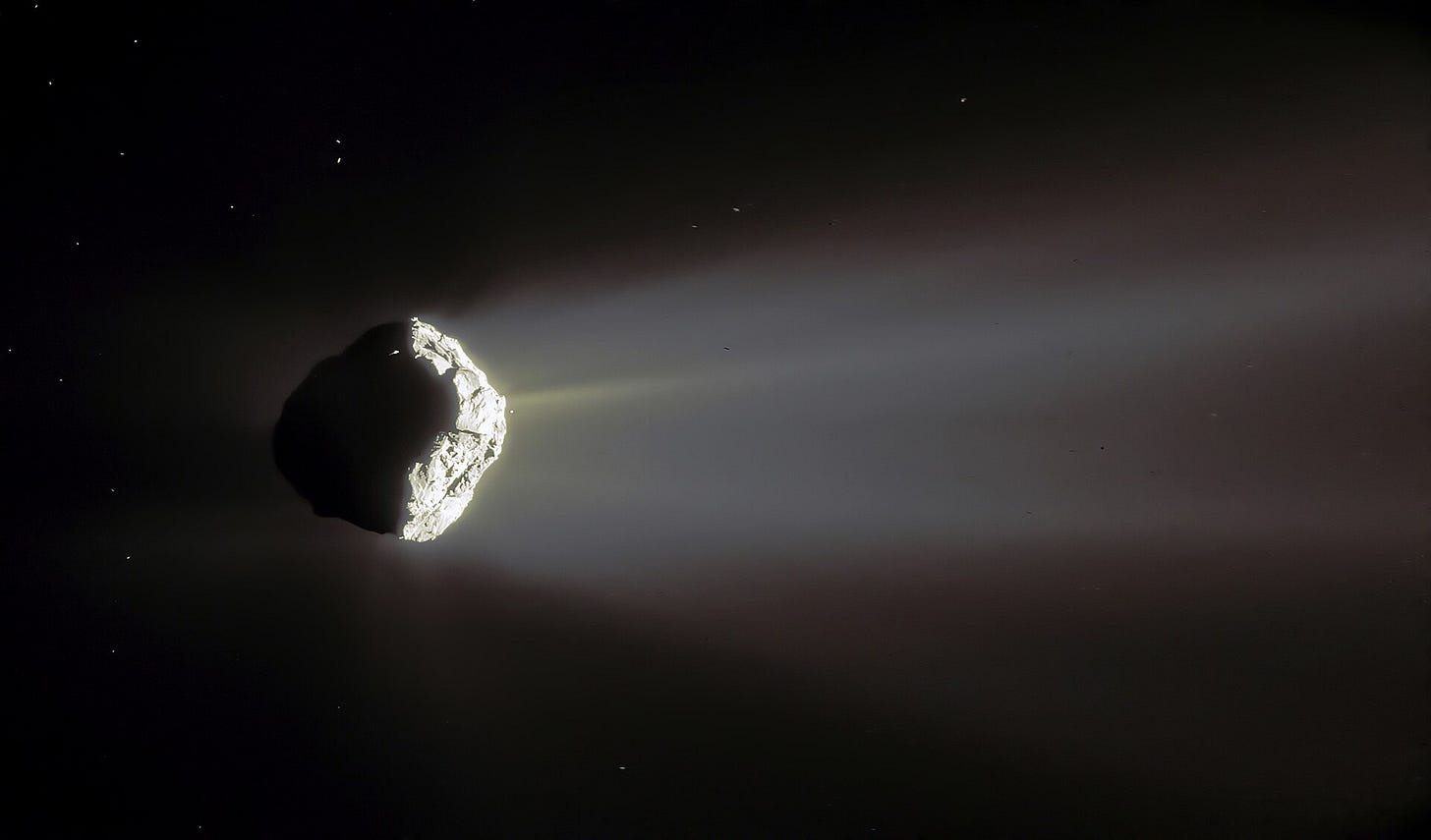
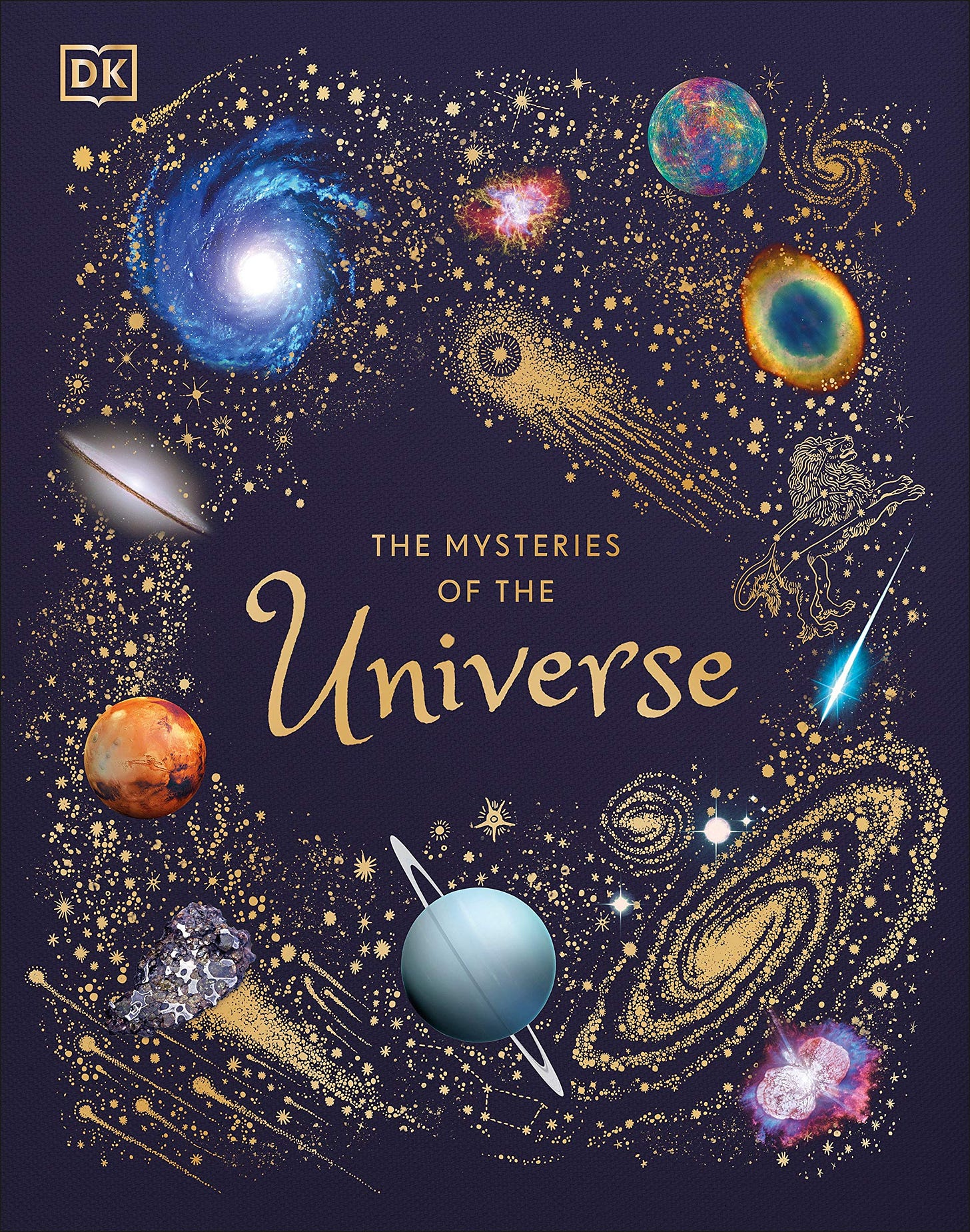
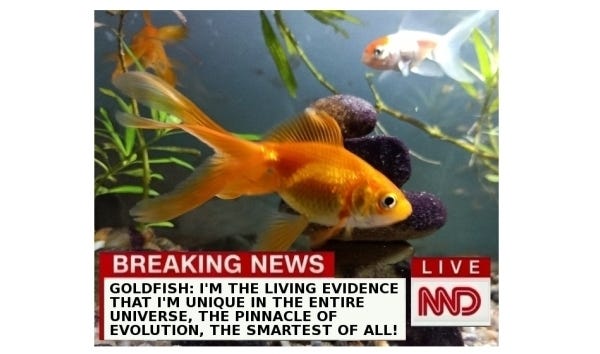
Excellent article, Alf, I thoroughly agree - for most people, despite all evidence to the contrary, the Earth is still the centre of the Universe - it's as if they'll do anything to avoid seeing the true vast scale of things. The media seems determined to reinforce this delusions too. I just watched an episode of the middling quality show Resident Alien, in which the titular alien bragged that 'humans are stupid. They think the Universe is huge but actually it's tiny.' No explanation was given for this statement, but it's pretty clear it was yet more comfortable delusions!
Hello again, blasted auto correct kept changing 'delusion' singular to 'delusions' plural in my previous message!